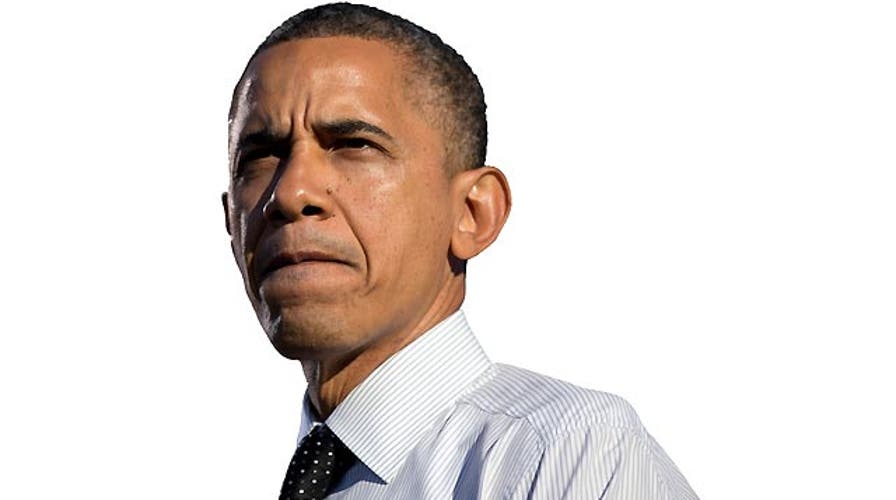What are the consequences if US strikes on Syria alone?
Key allies seek more time to consider military action
President Obama’s vacillation on Syria -- first delaying military action and then booting the decision to Congress-- poses grave threats to U.S. prosperity.
Imminent military action, especially in the Middle East, encourages fears of shortages and panic in oil markets.
Two years ago, oil prices jumped to more than $110 in anticipation of the U.S. action in Libya but then subsided when the worst did not happen to oil supplies.
With mounting evidence that Syria used chemical weapons, oil prices have again jumped, and a prolonged debate in Congress could push gasoline above $4.00. That would dent Detroit’s resurgent auto sales, shelve investment decisions across manufacturing, and weigh on already flagging new home sales.
[pullquote]
Should the Congress approve military force, Iran could attack Israel or cut back on oil production, permanently pushing up prices. However, once U.S. strikes begin, if those consequences don’t materialize, oil prices should fall back.
The president exacerbated near term fears by first vacillating after Syrian President Assad crossed his red line, and then asking Congress to vote on military action during the week of September 9.
Had Obama acted quickly on his own, or at least called Congress back into session immediately, the period of uncertainty would have been cut from at least a month to one week.
Extended uncertainty can wreck havoc on investment and consumer spending, and potentially tank the economy.
The president faces formidable opposition among Congressional liberals and the Tea Party, who don’t grasp what is at stake for U.S. security and economic interests.
Since Roosevelt, the United States has carefully promoted a system of international law that prohibits aggression, protects human rights, and promotes freer markets for international trade and investment.
The Chemical Weapons Convention, which 188 nations have signed, clearly prohibits Assad’s egregious conduct. Sadly, the British Parliament has abdicated its responsibilities by voting against UK military action, and the Germans and Japanese are hardly supportive.
Russia and China, two countries that abide only by international rules only when they suit their convenience, have blocked action at the Security Council.
Among nations with significant military power, or at least the financial resources to back it, America, France and perhaps a few others stand alone.
The liberals and Tea Party, who are very reluctant to support military force unless U.S. security is directly threatened, should consider the longer-term consequences of U.S. inaction on the economy and jobs.
With the United States, China, Japan and Germany account for about half the global economy and the latter already view the United States as a weak and fading power. By history and design, none has much use for the rules of commerce established by the WTO and similar institutions, and have acted with considerable impunity.
For example, Japanese Prime Minister Shinzo Abe’s economic recovery program hinges on purposefully undervaluing the yen to pump up exports and steal jobs in the U.S. automotive sector and elsewhere in U.S. manufacturing.
Chinese and German commercial policies victimize smaller nations -- consider what Angela Merkel’s austerity policies are doing to Greece and Portugal to keep Germany’s export machine going -- and destroy American jobs . After all, China’s undervalued yuan and naked protectionism stole the solar panel industry from U.S. manufacturers.
They behave so badly, despite U.S. protestations, because from Obama is viewed as weak and naïve.
By leading from behind internationally and failing to act forcefully against protectionism that harms American workers, he has emboldened those nations’ to give lip service to international rules and then do whatever they please.
Meanwhile, the U.S. recovery drags along at a paltry 2 percent, while China's economy grows at 7.5 percent, and Japan and Germany recover.
If the liberals and Tea Party block U.S. military action against Syria, that vote will mark the end of the United States of America as a prosperous nation with the resolve to lead.

